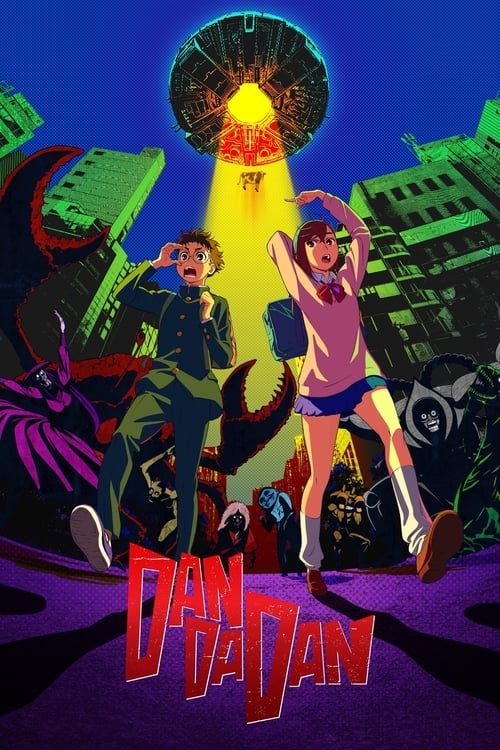
Ask Your Own Question
What is the plot?
The episode begins with Arisu, Usagi, and Chishiya in a tense situation after the previous game. They are in a deserted area, trying to process the events that have transpired. Arisu is visibly shaken, grappling with the loss of his friends and the harsh reality of their situation in the Borderland. Usagi, on the other hand, is focused and determined, trying to keep the group motivated and moving forward.
As they navigate through the desolate landscape, they come across a large, abandoned building. The trio decides to enter, hoping to find shelter and possibly clues about the next game. Inside, they discover remnants of past players, including personal belongings and signs of struggle, which heightens the tension and sense of danger. The atmosphere is heavy with despair, and Arisu reflects on the fragility of life in this world.
While exploring the building, they encounter a group of players who are also searching for answers. This group is led by a charismatic but ruthless player named Hatter, who has a reputation for being manipulative. Hatter proposes a new game, one that involves a high-stakes card game where the players must wager their lives. The stakes are clear: win, and they can continue to survive; lose, and they face dire consequences.
Arisu, Usagi, and Chishiya are initially hesitant but realize they have no choice but to participate. They agree to join Hatter's game, knowing that their survival depends on their ability to outsmart the other players. The game begins, and the tension escalates as players are eliminated one by one. Each round reveals the players' strategies and motivations, showcasing their desperation and willingness to betray one another.
As the game progresses, Arisu's analytical mind kicks in. He starts to piece together the patterns and strategies of the other players, using his knowledge of games to gain an advantage. Usagi supports him, providing emotional strength and encouragement. Chishiya, with his cunning nature, plays a more ambiguous role, often keeping his true intentions hidden.
During a critical moment in the game, Arisu makes a bold decision to confront Hatter directly, challenging his authority and questioning the morality of the game. This confrontation reveals Hatter's darker side, as he becomes increasingly aggressive and unpredictable. The stakes rise even higher as the players realize that Hatter is not just a facilitator but also a player who will do anything to win.
As the final rounds of the game unfold, alliances shift, and betrayals occur. Arisu and Usagi find themselves in a precarious position, forced to make difficult choices that test their trust in each other. The emotional weight of their decisions is palpable, as they grapple with the fear of losing one another in this brutal game.
In a climactic showdown, Arisu manages to outsmart Hatter, using a combination of strategy and psychological manipulation. The victory comes at a cost, as the remaining players are left to deal with the aftermath of the game. Hatter's defeat reveals the fragility of power in the Borderland, and the remaining players are left to ponder their next moves.
The episode concludes with Arisu, Usagi, and Chishiya emerging from the game, physically and emotionally exhausted but alive. They reflect on the harrowing experience, aware that the challenges ahead will only become more dangerous. The bond between them strengthens, but the uncertainty of their future in the Borderland looms large, setting the stage for the next phase of their survival.
What is the ending?
In the ending of "Alice in Borderland," Season 1, Episode 8, Arisu and Usagi confront the final game, which is a deadly version of "the game of life." They face off against the remaining players, including the formidable dealer, and must navigate a series of intense challenges. Ultimately, Arisu's strategic thinking and Usagi's agility lead them to victory, but not without significant emotional and physical tolls. The episode concludes with a sense of uncertainty as they are left to ponder the true nature of their reality.
As the episode unfolds, the tension escalates in a dimly lit, abandoned building where the final game takes place. Arisu and Usagi, having survived numerous trials, find themselves among a small group of players, each grappling with their own fears and motivations. The atmosphere is thick with anxiety as they realize the stakes are higher than ever; failure means death.
The game begins with the dealer explaining the rules, which are shrouded in ambiguity. The players must work together, but trust is a fragile commodity in this world. Arisu, ever the strategist, takes charge, urging the others to focus on their strengths. Usagi, with her athletic prowess, becomes a key player in executing their plans. The tension between the characters is palpable, as alliances form and dissolve under the pressure of survival.
As the game progresses, the players face a series of harrowing challenges that test their physical and mental limits. Each round reveals more about their personalities and motivations. Arisu's determination to survive is fueled by his desire to protect Usagi, while Usagi's fierce loyalty to Arisu drives her to push beyond her limits. The emotional stakes rise as they confront their fears and the reality of their situation.
In a climactic moment, Arisu devises a risky plan that involves sacrificing his own safety for the sake of the group. This decision highlights his growth from a passive character to a decisive leader. Usagi, witnessing his bravery, is inspired to take bold actions of her own, showcasing her evolution as a character. The bond between them deepens, underscoring the theme of connection in a world designed to isolate.
As the final challenge unfolds, the remaining players are forced to confront their own demons. The dealer, representing the cruel nature of the games, becomes increasingly menacing. The tension reaches a boiling point as Arisu and Usagi execute their plan, leading to a heart-pounding conclusion where they narrowly escape death.
In the aftermath, the surviving players are left to grapple with the emotional fallout of their experiences. Arisu and Usagi emerge victorious, but the victory is bittersweet. They are haunted by the memories of those they lost along the way, and the uncertainty of what lies ahead looms large. The episode ends with them standing together, contemplating their next move in a world that remains perilous and unpredictable.
The fates of the main characters are as follows: Arisu and Usagi survive the final game, but their journey is far from over. They are left with the weight of their experiences and the knowledge that the games may not be finished. The emotional scars of their trials linger, setting the stage for future challenges and the exploration of their evolving relationship in the face of ongoing adversity.
Is there a post-credit scene?
In "Episode 8" of "Alice in Borderland," there is no post-credit scene. The episode concludes without any additional content after the credits roll. The focus remains on the intense and emotional climax of the main storyline, leaving viewers with a sense of closure for that episode while setting the stage for future developments in the series.
How do the relationships between the characters evolve in this episode?
In Episode 8, the relationships between characters like Arisu, Usagi, and Chishiya deepen as they navigate the challenges of the game. Trust becomes a central theme, with characters forming alliances and questioning each other's loyalty, which adds emotional weight to their interactions.
What game do the characters play in Episode 8?
In Episode 8 of Alice in Borderland, the characters participate in a game called 'The Witch Hunt.' This game involves a complex setup where players must identify the 'witch' among them while trying to survive the deadly consequences of their choices.
How does Arisu's character develop in Episode 8?
In Episode 8, Arisu's character experiences significant growth as he grapples with the moral complexities of the game. He becomes more strategic and determined, showing a deeper understanding of the stakes involved and the importance of trust among his companions.
What is the significance of the 'witch' in the game?
The 'witch' in the game represents a pivotal role that creates tension and paranoia among the players. The witch must be identified and eliminated, which leads to intense psychological gameplay, revealing the characters' fears and motivations.
What are the consequences of losing the game in Episode 8?
The consequences of losing the game in Episode 8 are dire, as players face lethal outcomes. The stakes are heightened, leading to moments of desperation and betrayal, which underscore the brutal reality of the Borderland and the lengths to which characters will go to survive.
Is this family friendly?
"Alice in Borderland," particularly in episode 8, contains several elements that may not be suitable for children or sensitive viewers. Here are some potentially objectionable aspects:
-
Violence: The episode features intense scenes of violence, including graphic depictions of characters being harmed or killed, which can be distressing.
-
Death and Despair: There are themes of mortality and the emotional weight of loss, as characters grapple with the consequences of their actions and the reality of their situation.
-
Psychological Tension: The atmosphere is filled with suspense and psychological stress, which may be unsettling for younger audiences.
-
Mature Themes: The narrative explores complex themes such as survival, betrayal, and the moral dilemmas faced in life-or-death situations, which may be difficult for children to understand.
-
Emotional Distress: Characters experience significant emotional turmoil, including fear, anxiety, and hopelessness, which could be upsetting for sensitive viewers.
These elements contribute to a dark and intense viewing experience, making it less appropriate for a family-friendly audience.





















